Today Current Affairs: 14th December 2021 for UPSC IAS exams, State PSC exams, SSC CGL, State SSC, RRB, Railways, Banking Exam & IBPS, etc
Table of Contents
Delimitation Panel:
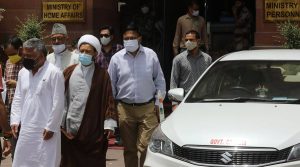
The National Conference (NC) has, in a letter to the Jammu and Kashmir Delimitation Commission (headed by retired Supreme Court Judge Justice Ranjana Prakash Desai), sought details of the agenda of the upcoming meeting with parties from the Union Territory.
- The Jammu and Kashmir Delimitation Commission has said that it will base its final report on the 2011 Census and will also take into account the topography, difficult terrain, means of communication and convenience available for the ongoing delimitation exercise.
- The commission is mandated to carve out seven additional seats for the 83-member Assembly of the Union Territory (UT).
Delimitation exercise in J&K- a timeline:
- The first delimitation exercise, carving out 25 assembly constituencies in the then state, was carried out by a Delimitation Committee in 1951.
- The first full-fledged Delimitation Commission was formed in 1981 and it submitted its recommendations in 1995 on the basis of 1981 Census. Since then, there has been no delimitation.
- In 2020, the Delimitation Commission was constituted to carry out the exercise on the basis of 2011 Census, with a mandate to add seven more seats to the Union Territory’ and grant reservations to SC and ST communities.
- Now, the total number of seats in Jammu and Kashmir will be raised to 90 from the previous 83. This is apart from 24 seats which have been reserved for areas of PoK and have to be kept vacant in the Assembly.
- The Delimitation Commission for Jammu and Kashmir was constituted by the Centre on March 6 last year to redraw Lok Sabha and assembly constituencies of the union territory in accordance with the provisions of the Jammu and Kashmir Reorganisation Act, 2019 and Delimitation Act, 2002, passed by the Centre in August 2019 along with other J&K-specific Bills.
Delimitation:
- Delimitation literally means the process of fixing limits or boundaries of territorial constituencies in a state that has a legislative body.
- Delimitation is undertaken by a highly powerful commission. They are formally known as Delimitation Commission or Boundary Commission.
- These bodies are so powerful that its orders have the force of law and they cannot be challenged before any court.
- According to the Delimitation Commission Act, 2002, the Delimitation Commission will have three members: a serving or retired judge of the Supreme Court as the chairperson, and the Chief Election Commissioner or Election Commissioner nominated by the CEC and the State Election Commissioner as ex-officio members.
S-400 And CAATSA:
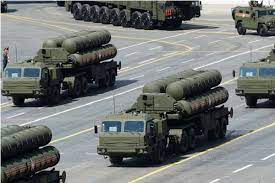
The U.S. State Department spokesperson has said that there will be no “blanket” waiver for India, indicating that even if S-400 Triumf anti-aircraft missile systems deal is not sanctioned, other “significant” military and nuclear transactions between India and Russia could still trigger sanctions under the Countering America’s Adversaries Through Sanctions Act (CAATSA).
- There has been unease in Washington ever since 2016 when India announced the deal with Russia, which remains New Delhi’s biggest defence partner.
- Now, the S-400 deal could attract sanctions under US’ CAATSA law. The US has already sanctioned China and Turkey over similar purchases.
- The S-400 Triumf is a mobile, surface-to-air missile system (SAM) designed by Russia.
- It is the most dangerous operationally deployed modern long-range SAM (MLR SAM) in the world, considered much ahead of the US-developed Terminal High Altitude Area Defense system (THAAD).
- Countering America’s Adversaries through Sanctions Act (CAATSA)‘s core objective is to counter Iran, Russia and North Korea through punitive measures.
- Enacted in 2017.
- Includes sanctions against countries that engage in significant transactions with Russia’s defence and intelligence sectors.
Logistics Agreements:

India is all set to conclude the bilateral logistics agreement with Russia (the Reciprocal Exchange of Logistics Agreement (RELOS)) soon.
- RELOS will be an important step forward in the military sphere as it aims at fostering interoperability and sharing of logistics. The “long overdue” agreement was to have come up for signing in 2019 but that was put off pending finalisation of its terms.
- India has logistical exchange agreements with six other countries, including Quadrilateral Security Dialogue, or Quad, partners US, Japan and Australia. Singapore, France and South Korea are the other countries with which similar arrangements have been effected.
What are logistics agreements?
- The agreements are administrative arrangements facilitating access to military facilities for exchange of fuel and provisions on mutual agreement simplifying logistical support and increasing operational turnaround of the military when operating away from India.
- India has signed several logistics agreements with all Quad countries, France, Singapore and South Korea beginning with the Logistics Exchange Memorandum of Agreement (LEMOA) with the U.S. in 2016.
- The Navy has been the biggest beneficiary of these administrative arrangements, signed with several countries, improving operational turnaround and increasing inter-operability on the high seas.
What is LEMOA?
- It is a tweaked India-specific version of the Logistics Support Agreement (LSA), which the U.S. has with several countries it has close military to military cooperation. It is also one of the three foundational agreements — as referred to by the U.S.
- LEMOA gives access, to both countries, to designated military facilities on either side for the purpose of refuelling and replenishment.
Minimum Support Price (MSP):
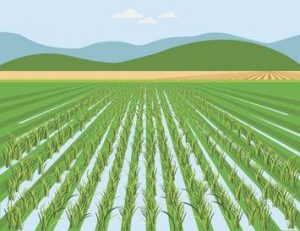
BJP MP Varun Gandhi has introduced a private bill for Minimum Support Price of crops in Parliament.
Overview of The farmers right to guaranteed minimum support price realization of agri-produce Bill, 2021:
- It seeks to legally guarantee of MSP with financial outlay of Rs 1 lakh crore.
- It aims to provide legally guaranteed minimum support price (MSP) for 22 crops that should be set at a profit margin of 50 per cent over the comprehensive cost of production.
- Any farmer realising a price less than the above declared MSP shall be entitled to a compensation equal to the difference in value between price realised and the guaranteed MSP.
- It also proposes that payments should be made directly into the accounts of farmers within two days of the transaction.
- The declaration of guaranteed MSP to farmers shall result in improved farm realization for potentially 93 million agricultural households, leading to a resurgence in the rural economy.
- MSP is the rate at which the government buys grains from farmers. Currently, it fixes MSPs for 23 crops grown in both Kharif and Rabi seasons.
- The MSP is the rate at which the government purchases crops from farmers, and is based on a calculation of at least one-and-a-half times the cost of production incurred by the farmers.
- The Union Budget for 2018-19 had announced that MSP would be kept at levels of 1.5 the cost of production.
- The MSP is fixed twice a year on the recommendations of the Commission for Agricultural Costs and Prices (CACP), which is a statutory body and submits separate reports recommending prices for kharif and rabi seasons.
- The CACP considers both ‘A2+FL’ and ‘C2’ costs while recommending MSP.
- A2 costs cover all paid-out expenses, both in cash and kind, incurred by farmers on seeds, fertilisers, chemicals, hired labour, fuel and irrigation, among others.
- A2+FL covers actual paid-out costs plus an imputed value of unpaid family labour.
- The C2 costs account for the rentals and interest forgone on owned land and fixed capital assets respectively, on top of A2+FL.
- The major problem with the MSP is lack of government machinery for procurement for all crops except wheat and rice, which the Food Corporation of India actively procures under the PDS.
- As state governments procure the last mile grain, the farmers of states where the grain is procured completely by the government benefit more while those in states that procure less are often affected.
- The MSP-based procurement system is also dependent on middlemen, commission agents and APMC officials, which smaller farmers find difficult to get access to.
- Farmers receive less than MSP: In most crops grown across much of India, the prices received by farmers, especially during harvest time, are well below the officially-declared MSPs. And since MSPs have no statutory backing, they cannot demand these as a matter of right.
- Also, the actual procurement at MSP by the Govt. is confined to only about a third of wheat and rice crops (of which half is bought in Punjab and Haryana alone), and 10%-20% of select pulses and oilseeds.
Asian Power Index For 2021:
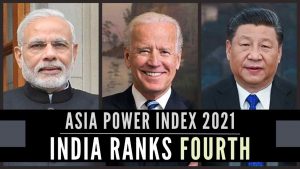
Asian Power Index ranks 26 nations and territories. It is released by the Sydney-based Lowy Institute.
Highlights of the latest report:
- India has risen as the 4th most powerful country in the Asia-Pacific region for comprehensive power out of 26 countries, with an overall score of 37.7 out of 100.
- India’s overall score declined by 2 points compared to 2020. India again falls short of the major power threshold in 2021.
- India is one of 18 countries in Asia to trend downward in its overall score in 2021.
- The top 10 countries for overall power in the Asia-Pacific region are:
- United States
- China
- Japan
- India
- Russia
- Australia
- South Korea
- Singapore
- Indonesia
- Thailand
Bank Deposit Insurance Program:

The Central government has highlighted the significance of increase in bank deposit insurance cover, in case of problems occurring such as closure, from Rs 1 lakh to Rs 5 lakh. PM Modi is to address the nation on Bank Deposit Insurance.
- Earlier, there used to be a bank deposit insurance cover of Rs 1 lakh for the deposit of the same amount or more under the ‘Deposit Insurance Credit Guarantee Scheme’.
- Deposit insurance is providing insurance protection to the depositor’s money by receiving a premium.
- The government has set up Deposit Insurance and Credit Guarantee Corporation (DICGC) under RBI to protect depositors if a bank fails.
- DICGC charges 10 paise per ₹100 of deposits held by a bank. The premium paid by the insured banks to the Corporation is paid by the banks and is not to be passed on to depositors.
- DICGC last revised the deposit insurance cover to ₹5 lakh in Feb, 2020, raising it from ₹ 1 lakh since 1993.
Deposit Insurance- Coverage:
- Deposit insurance covers all deposits such as savings, fixed, current, recurring deposits, etc. in all commercial banks, functioning in India.
- Deposits in State, Central and Primary cooperative banks, functioning in States/Union Territories are also covered.
New Caledonia:
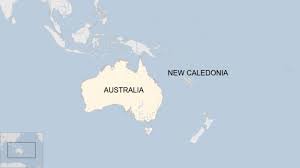
Voters in the French island territory of New Caledonia chose overwhelmingly to remain part of France, in a referendum boycotted by pro-independence forces and closely watched around the South Pacific.
- New Caledonia is a sui generis collectivity of overseas France in the southwest Pacific Ocean, south of Vanuatu, about 1,210 km east of Australia, and 17,000 km from Metropolitan France.
- The archipelago, part of the Melanesia subregion, includes the main island of Grande Terre, the Loyalty Islands, the Chesterfield Islands, the Belep archipelago, the Isle of Pines, and a few remote islets.
- The Chesterfield Islands are in the Coral Sea.
- French President Emmanuel Macron hailed the result as a resounding confirmation of France’s role in the Indo-Pacific, and announced negotiations on the territory’s future status. Separatist activists expressed disappointment.
- They had urged a delay in the vote because of the pandemic, and were angry over what they said were French government efforts to sway the campaign.
- So they called on their supporters to stay away from voting stations.
Buxa Tiger Reserve:
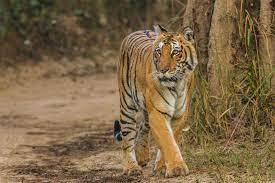
An increase in the forest density and the big cat prey base, especially deer, had attracted a Royal Bengal tiger, a first such sighting in 23 years, to the Buxa Tiger reserve
- They believed that a favourable habitat at the tiger reserve would invite more tigers, which had migrated to neighbouring Bhutan.
- The state shares a contiguous range of the protected area with Bhutan.
- The forest department shared a camera trap picture of the tiger spotted at the East Damanpur range of the tiger reserve.
- Buxa Tiger Reserve lies in Alipurduar district of West Bengal.
- Its northern boundary runs along the international border with Bhutan. The Phibsoo Wildlife Sanctuary of Bhutan is contiguous to the north of BTR.
- The Sinchula hill range lies all along the northern side of BTR and the eastern boundary touches that of the Assam state.
- Manas National Park lies on east of BTR. BTR, thus, serves as international corridor for Asian elephant migration between India and Bhutan.
- National Highway No.31 C roughly runs along its southern boundary.
- It is the easternmost extension of extreme bio-diverse North-East India and represents highly endemic Indo-Malayan region.
- The fragile “Terai Eco-System” constitutes a part of this reserve.




